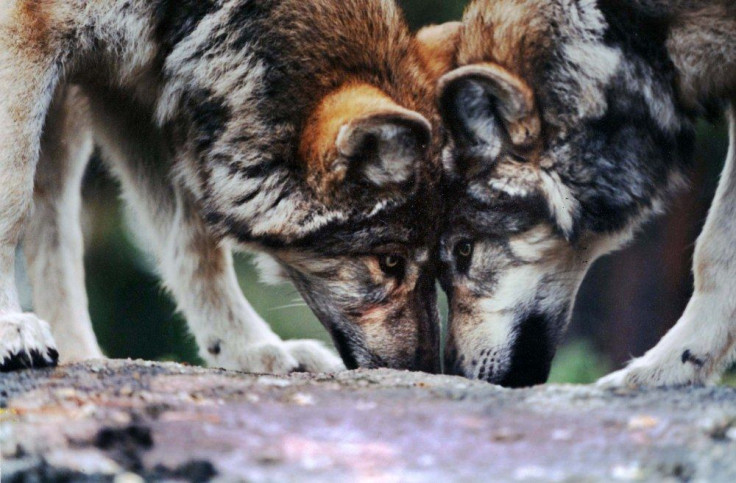Alaskan Wolf Population Threatened By Hunting, New Survey Finds

The number of wolves inhabiting Denali National Park and Preserve in Alaska has been on a significant decline over the last five years. However, new findings from the National Park Service or NPS, suggests that hunting caused the wolf population decline.
The magnificent grey wolves are an uncommon sighting in the U.S. They were once commonly seen in the North and Midwest, but due to excessive hunting and invasion by other animals these wolves die out little by little leaving them to only inhabit Alaska, Canada and the Yellowstone National Park.
Farmers and hunters in Alaska are permitted to kill wolves for self-defence and sport because these creatures are not protected by state or federal law. In 2013, an estimated 11,200 wolves have been killed.
NPS surveys wolf population in the park twice a year through wolves that wear radio collars, according to News-Miner report. Some wolves that do not have collars have also been studied.
The first monitoring of wovles in the park began in 1986. The estimate made this spring was considered the lowest for any survey conducted in spring. The recent survey counts a total of 52 wolves.
Initially, it was thought that wolf population decline is due to natural causes. However, the NPS needed to revise its study conclusion after experts disputed the claim. NPS admitted that the decline was caused by more than just natural causes.
"It is time for the Park Service and State of Alaska to publicly admit the fact that trapping and hunting of Denali wolves has contributed to the unprecedented decline in wolf numbers and visitor viewing success," said Rick Steiner, a member of Public Employees for Environmental Responsibility or PEER, in a May 7 news release.
According to the PEER release, the NPS is currently considering closing parks for wolf hunting and the entire state of Alaska is also considering the same measure by starting wolf buffer on the boundaries of the national park.
To report problems or leave feedback on this article, email: wendylemeric@gmail.com.





















